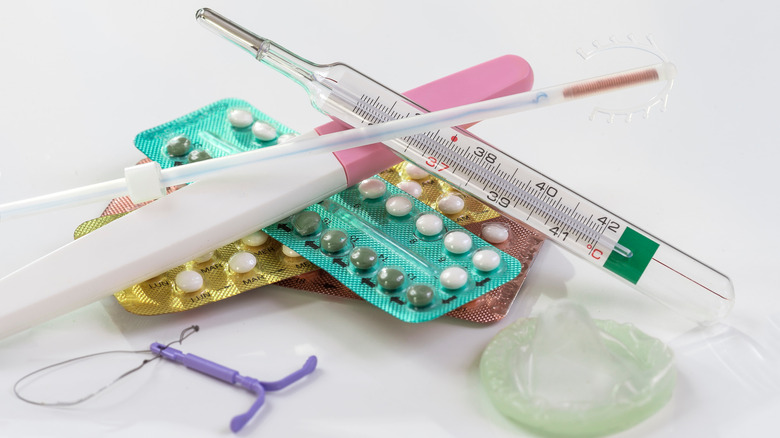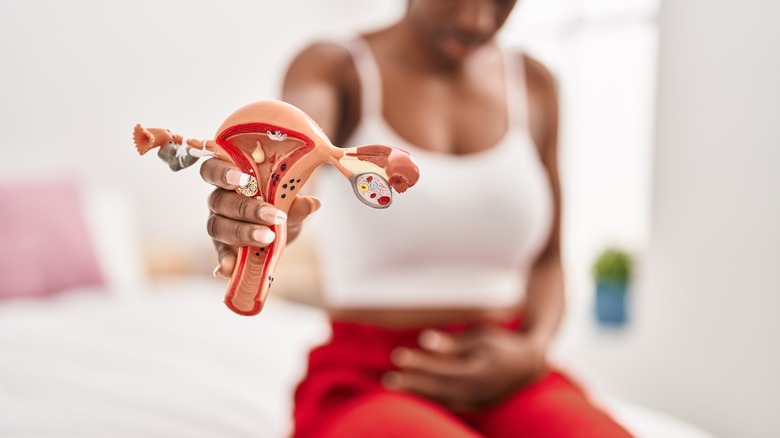Why Bayer Pulled Essure Birth Control Off The Market
For many people, having children is high on their list of priorities and even a lifelong dream of theirs. Others may not be ready for such a big commitment and some may not ever want to have children at all. Fortunately, the latter categories are generally more able to avoid unwanted pregnancies thanks to birth control.
Depending on the method, birth control can be used short-term or over an extended period of time. According to Planned Parenthood, low-maintenance approaches like birth control implants and IUDs maintain high efficacy rates of 99%, whereas methods administered on a schedule are slightly less effective. Contraceptives that you use every time you have sex, like condoms and spermicides, are comparatively less effective. As all of the above methods are impermanent and reversible, a woman can change her mind about wanting to become pregnant in the future.
Those who are certain they will never want to have children may opt for a more permanent birth control method, such as a vasectomy or sterilization. Essure, a novel form of permanent birth control, was approved by the Food and Drug Administration (FDA) in November of 2002 under the agreement that two post-approval studies would be conducted, as reported by MedPage Today.
During the years that Essure was available, troubling claims were brought forward by a number of women who received the procedure.
Concerns about the safety of Essure
Essure is an insertable device, so it provides a permanent form of birth control that doesn't require cutting into the body or burning the fallopian tubes, as explained by Drugwatch. During the operation, a flexible metal coil is implanted into each of the fallopian tubes. Nickel, titanium, platinum, and stainless steel are some of the metals used to make these coils. Essure prevents pregnancy by creating scar tissue in the fallopian tubes, which restricts sperm's ability to reach an egg.
According to the FDA, clinical trials on Essure revealed both potential long-term and short-term risks associated with the device. Some short-term potential side effects included pain during and after the insertion, cramping, vaginal bleeding, headaches, nausea, and dizziness. Some of the long-term potential side effects reported in the clinical trials were that Essure could potentially cause an allergic or hypersensitive reaction, perforate the uterus and fallopian tubes, or that the device could move out of place and into the abdominal or pelvic cavity.
Anecdotally, a number of women who received an Essure implant reported experiencing unpleasant and sometimes serious problems after their procedure. These included hair loss, dental issues, autoimmune disorders, and painful sex, per Drugwatch.
The controversy surrounding Essure
A number of people voiced their concerns about Essure's side effects. For instance, one adverse event report submitted to the FDA was an account of a patient who had received an Essure implant two days before being admitted to the ER for abdominal pain. The patient ultimately died, apparently from a streptococcal infection that led to her cervix, fallopian tubes, and uterus becoming necrotic (per ABC15).
Many women also filed lawsuits against Bayer, alleging that the company wasn't transparent about the potential side effects of the device, as reported by Drugwatch. In 2018, Essure was discussed in a Netflix documentary called "The Bleeding Edge." The documentary warned about complications related to the implantation of certain devices promoted by the medical device industry. Some women also took to social media to share their negative experiences with Essure.
According to a 2018 news release by the FDA, the sale and distribution of Essure was restricted only to healthcare providers and facilities capable of educating patients about its potential risks. That same year, Bayer reported on their website that they'd made a voluntary business decision to cease selling and marketing Essure.



